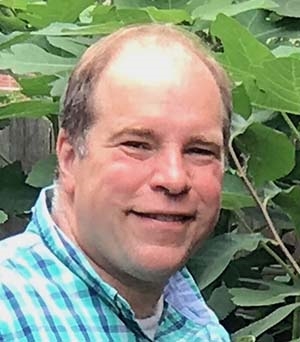Visiting Professor at U of A Focuses Research on Climate Change and Missouri Agriculture
Tim Eichler, a visiting assistant professor at the University of Arkansas and an expert on climate change, recently had a manuscript published in the International Journal of Climatology focusing on Southern Hemisphere storm tracks.
Eichler's research was supported by a grant from the National Science Foundation. The NSF program was the "Experimental Program to Stimulate Competitive Research" or EPSCoR for short. The NSF EPSCoR grant was designed to assess how climate change may alter Missouri agriculture.
"My work is designed to assess how mid-latitude cyclones change due to global warming which would alter where rainfall occurs, which impacts agriculture," he said.
The initial findings in Eichler's current research indicate a poleward shift in the frequency of cyclones for the winter season over North America in response to global warming consistent with a likely poleward shift in the jetstream. The potential impact would be for winter precipitation to shift north from the U.S. into southern Canada. Additionally, more intense cyclones were found in response to global warming west of the Appalachians. Eichler said that's possibly due to air of higher moisture content being entrained into the cyclones from the North Atlantic, the Gulf of Mexico — or possibly both — from increases in sea-surface temperatures in response to global warming.
Eichler said less research has been done on the Southern Hemisphere regarding weather and climate. His manuscript demonstrates how mid-latitude cyclone frequency and intensity are altered due to features of the climate system such as El Nino, the Indian Ocean Dipole, and the Antarctic Oscillation in the Southern Hemisphere.
"Understanding the relationship between these features and cyclone tracks can be used to help improve seasonal forecasts in the southern hemisphere," he said. "The climate model used in this study did a fairly good job in predicting how El Nino alters cyclone tracks but not for the Indian Ocean Dipole. This points to the need for a large number of simulations, known as an 'ensemble,' be run to better assess how external forcings of the climate system affect cyclone tracks and the atmospheric circulation in general. Once again, this is useful for seasonal forecasts."
Practically speaking, Eichler said, understanding how cyclone tracks behave in the current climate serve as a foundation to explore the effects of future climate change, such as global warming.
Eicher has a Ph.D in atmospheric science from Columbia University and previously taught statistics, geography, climate science and meteorology classes at Saint Louis University.
"I pursued my PhD in atmospheric science, with a specialization in climate, due to my passion for weather — which I have had since I was a toddler — coupled with my curiosity as a scientist to understand how the world works; in this case, to understand how weather may change if climate changes," he said. "This is a relatively new concept in my field called 'climate/weather connections'."
He said the improved state of data and models allows him to study these climate connections.
Models and data are now at a much finer spatial resolution, compared to when he started looking at climate models in the late 1980s, so it's easier to study climate connections.
"The data is also at a higher temporal resolution, meaning data every three hours as compared to monthly in the late 1980s and early 1990s," he said. "Since weather occurs at sub-daily timescales and is best represented at high spatial resolution — think of days when it may rain in Fayetteville and not in Bentonville or vice-versa — the current suite of models and observed data are excellent tools to study the role of weather in climate and how weather changes in current and future climate."
Eichler has also written a manuscript regarding the impact of global warming on storm tracks over North America. It has been accepted, pending revision, to Climate Dynamics. Eichler is submitting revisions now.
Topics
Contacts
Shannon G. Magsam, director of communications
College of Education and Health Professions
479-575-3138,
magsam@uark.edu
Headlines
PetSmart CEO J.K. Symancyk to Speak at Walton College Commencement
J.K. Symancyk is an alumnus of the Sam M. Walton College of Business and serves on the Dean’s Executive Advisory Board.
Faulkner Center, Arkansas PBS Partner to Screen Documentary 'Gospel'
The Faulkner Performing Arts Center will host a screening of Gospel, a documentary exploring the origin of Black spirituality through sermon and song, in partnership with Arkansas PBS at 7:30 p.m. Thursday, May 2.
UAPD Officers Mills and Edwards Honored With New Roles
Veterans of the U of A Police Department, Matt Mills has been promoted to assistant chief, and Crandall Edwards has been promoted to administrative captain.
Community Design Center's Greenway Urbanism Project Wins LIV Hospitality Design Award
"Greenway Urbanism" is one of six urban strategies proposed under the Framework Plan for Cherokee Village, a project that received funding through an Our Town grant from the National Endowment for the Arts.
Spring Bike Drive Refurbishes Old Bikes for New Students
All donated bikes will be given to Pedal It Forward, a local nonprofit that will refurbish your bike and return it to the U of A campus to be gifted to a student in need. Hundreds of students have already benefited.





